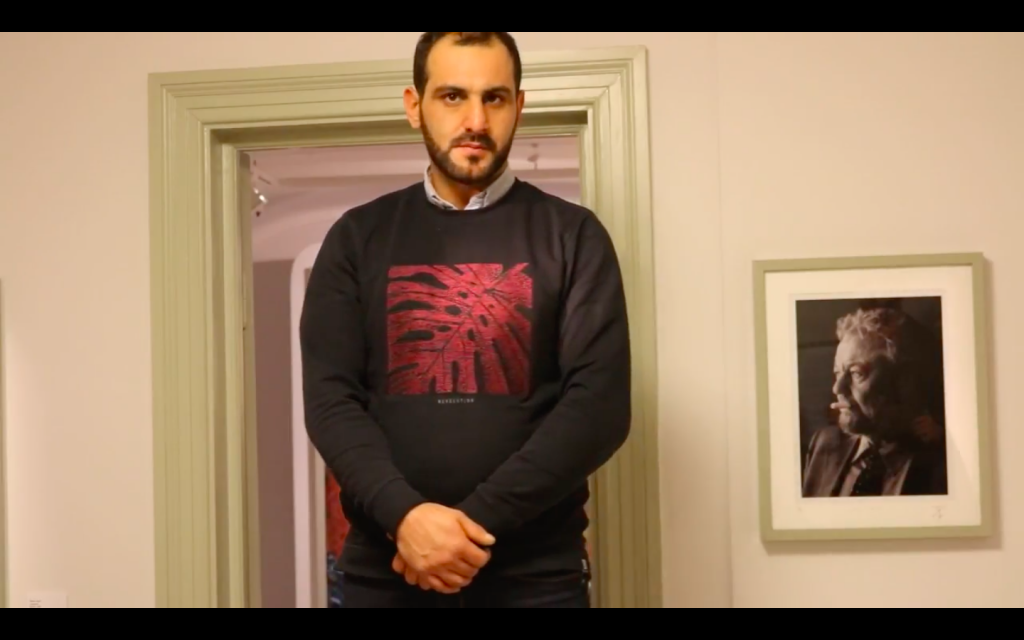
Riding the Donkey in Stockholm
A Non-Violent Communication workshop immediately followed by RtDB stories told live on stage
Antwerp, Belgium/4.40246430000002,51.2194475,4/1000x300.png)
What?
Humor opens up opportunities for people to relate to traumatic experiences that they otherwise would not be able to relate to. Vision Forum develops new ways to work with refugees in Europe who are held back in their personal development by memories of traumatic experiences in their home country and during the flight to Europe. Within the framework of three workshops performance artists, refugees, psychologists and teachers will together develop new skills, new audiences and new artistic expressions. The project brings together a group of artists working with performance art and with an interest in humor, with a group of refugees from Afghanistan and Mauritania. Refugees and artists will work together with experienced teachers who have long experience of working with refugees and who also have solid knowledge of humor and the contemporary art scene. The work will be carried out in four steps:
1. In the first step we create a dynamic group of artists and refugees who share common interests and work well together. Artists learn about migration and refugees learn about contemporary art and humor.
2. We develop a method that is the basis for larger groups of artists and refugees working together. In this phase we will work with theater educators and psychologists.
3. The project will end with small public presentations of work in Stockholm. These will take place both in art and academic institutions.
4. The ultimate goal is to open a comedy club in Stockholm by and for migrants and/or to see what the future holds in terms of collaborations, new artistic paths, etc.
Why?
The best comedians base their jokes on their own problems, weaknesses and traumatic experiences. But humor must touch something universal and fundamentally human to communicate with its audience. A comedian must go beyond simple self-expression. Artists know this process very well and can offer unique expertise how to turn individual experiences into something global. By bringing together migrants, performance artists and teachers who have extensive experience working with refugees, we create an exciting new dynamic. We open the opportunity for new creativity and new skills. Trauma, in whatever form it takes, cannot be cured. There is no medicine removing memories of exhaustion, violence, survival and humiliation. People carry their memories with them for good and are living with them. We are investigating how humor and performance can provide a method for dealing with human suffering:
– Can humor be a tool for migrants to cope with their traumatic experiences?
– Can humor help us to understand and disseminate knowledge about the economic inequalities and political conflicts that individual migrants’ live through?
– Can we develop a method that makes migrants’ lives and experiences more visible? Can this method offer an alternative to falling into the role of the victim?
Research shows that only 5-10% (interview with Maibritt Giacobini, child psychologist, 2015) of refugees suffer from post-traumatic-stress. The majority of refugees search for a job and a social context where they can create meaningful lives for themselves – these are the people we target – together of course with the so-called and self-proclaimed autochthones.
Sources
– Aimable Twagilimana, The Debris of Ham: Ethnicity, Regionalism, and the 1994 Rwandan Genocide
– Elaheh Rostami-Povey, Afghan Women: Identity and Invasion
– Michail Bakhtin, Rabelais and his World
– Henri Bergson, Laughter An Essay On The Meaning Of The Comic
– Richard Pryor, full discography
– Scott Saul, Becoming Richard Pryor
– Adam Curtis, Bitter Lake (BBC documentary)
– On the Move, Migratie in Europa (IDFA documentaries)
– Miki Kashtan: Reweaving Our Human Fabric – Working Together to Create a Nonviolent Future
– The Uncommon Sense of the Immortal Mullah Nasruddin, Stories, Jests, and Donkey Tales of the Beloved Persian Folk Hero
– Mohsin Hamid: Discontent and Its Civilizations.
– Richard H. Thaler & Cass R. Sunstein: Nudge – Improving Decisions About Health, Wealth, and Happiness
– Marc Lewis, Memoirs of an Addicted Brain: A Neuroscientist Examines his Former Life on Drugs
– Edward W. Said, Orientalism
– Peggy McIntosh, White Privilege and Male Privilege: A Personal Account of Coming to See Correspondences Through Work in Women Studies.
Support
The project is supported by Stockholms kulturförvaltning
No activities involving this hub at this time.
No topics started by this hub at this time.